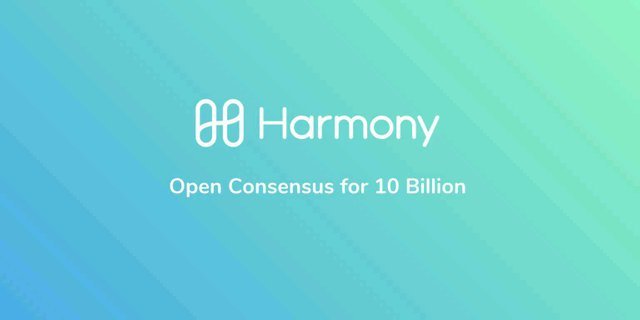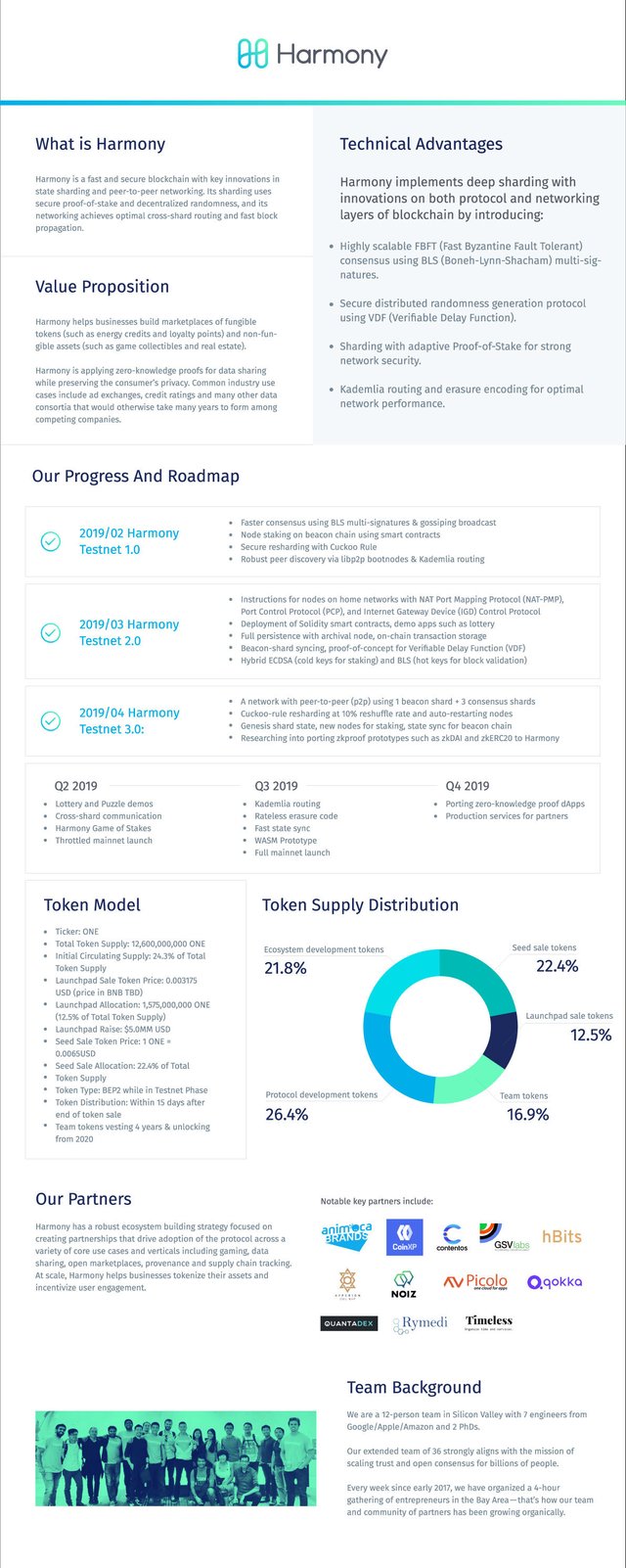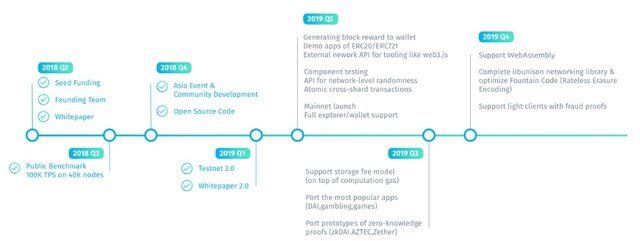Fast, Scalable, Decentralized: Harmony, the Future’s Open Consensus Platform.
What is Harmony?
armony is a new blockchain, fully scalable, safe and energy efficient. Based in sharding technology.
harmony is achieved in many aspects:
harmony not only sahrds the communication and transaction network validation like zilliga also shard the blockchain state. The sharding process is very secure and scalable. Harmony is based on PoS.
Harmony is a PoS blockchain that is capable of linear scaling, enabling unprecedented transactions per second with the ability to easily scale as the network becomes heavily utilized.It takes decentralization to a completely new level. It is the most decentralized form of staking powered by optimized sharding technology.
The first fully sharded PoS blockchain, the mainnet was launched on june 28th, which had 600 nodes making it one of the top decentralized networks.

The Blockchain: Its Journey Through Failure in Search Perfection
2008 marked the slow beginning to a revolution and perhaps what can be counted as one of the foremost innovations of the 21st Century –the Blockchain. With its promise of decentralization, trustless security in the transfer of value without centralized intermediaries and the promise of use cases in virtually all facets of human life, one thought this disruptive and innovative technology was the new gold and held the key to the future of a much more advanced digital revolution.The truth is, the idea of the blockchain is unimaginably brilliant and indeed holds the key to a much more advanced digital future of efficient decentralized applications with use cases across various industries like gaming, IoT, decentralized exchanges, banking etc; trustless security in the transfer of value and even much more secure information management.However, the pioneer blockchains as obtainable in Bitcoin, Ethereum and even newer blockchain solutions which profess to solve the problems of the first two have failed in the attempt to build a blockchain of the future which will unleash the true potential of decentralized technology. One of the hallmarks of the blockchain of the future is the ability to scale, that is, the ability to cater for as many users that may care to leverage its platform. Bitcoin and Ethereum fail woefully at being scalable. Bitcoin’s transaction capability of only 7 Transactions Per Second (TPS) and Ethereum’s wholly unhelpful improvement to 15 TPS constituted a very serious obstacle to the probability of these two blockchains being the base for a decentralized economy which will no doubt involve thousands (if not millions) of transactions per second from users all over the world. Perhaps Ethereum’s failure at being scalable can never be more evident than with the CryptoKitties disaster of 2017.Since Bitcoin and Ethereum, various blockchains such as Zilliqa and Omniledger have by their very infrastructure developed what they hoped to be solutions to the scalability problem of the blockchain. However, all fell pathetically short of the ideal blockchain that will power the trustless decentralized economies of our digital future.More recently, a new blockchain, Zilliqa, developed a amazingly ingenious solution to the scalability problem of contemporary blockchains known as sharding. However, yet again, it failed to provide the ideal blockchain of the future because such a blockchain need not only be scalable, it must be possess trustless security and be inherently decentralized. Zilliqa failed at the last two even with its sharded blockchain.While all predecessors have failed to provide the world with that low-latency, provably secure and low fee blockchain, a new project powered by brilliant minds from Silicon Valley have finally come through with a solution. Not surprisingly, it is called HARMONY. It brings melodious harmony into the chaos of the scramble for the ideal blockchain.
Better and More Consistent Cross Shard Communication
When transactions are divided across shards as in a Sharded blockchain, efficient communication between these shards becomes of the essence. For example, consider a sharded protocol network on which a transaction is trying to book a hotel room but Stadium reservations are booked on a different shard. What if the user ends up in a situation where a stadium seat is booked and not a hotel room? Harmony supports cross-shard transactions with shards directly communicating with each other and able to perform cross-shard operations synchronously.Harmony supports cross-shard communication with shards communication directly to each other using Kandemlia routing. When a message from shard A needs to be sent to shard B, the nodes in shard A will look at the routing table and send the message to the nodes which are closest which approach allows a message to travels faster and only across a few nodes before reaching its destination shard.
Low Transaction Costs.
High transaction costs always feature prominently among the factors that hinder the widespread application of the blockchain. This problem is closely related to scalability as when the network gets clogged, transaction costs rise exponentially. This was what Ethereum experienced with CryptoKitties.
However, even Sharded blockchains are not saved from this plague. In Zilliqa for instance, because each node has to hold the entire blockchain state to be ableto process transactions, when the blocksize grows, it becomes expensive and difficult to maintain the full ledger thereby increasing transaction costs.
However, state sharding as implemented by Harmony where each shard has to only hold a subset of the blockchain state is a better option as it minimizes the resources used to process transactions and ensures ultra low transaction costs in the process.
How can projects benefit from using Harmony as their underlying infrastructure?
For any project to thrive on the top of blockchain technology, all the three essential parameters have to be guaranteed by the underlying technology. Until now in most of the blockchain, it was a tradeoff between decentralization and scalability. Security is another important parameter.
Harmony guarantees all the three essential parameters of the underlying technology and with its state sharding, which otherwise does not affect the decentralization of the network, Harmony achieves a scalability which is at par with the centralized system. The testnet scalability figure is 118000 tps with 44000 and that is massive and a revolution. The projects can experience fast transaction throughput, low-cost transaction, a properly decentralized network and last but not the least enhanced security.
More Information and Resources
https://harmony.one/
https://harmony.one/pdf/whitepaper.pdf



Congratulations @jacqueline5! You have completed the following achievement on the Steem blockchain and have been rewarded with new badge(s) :
You can view your badges on your Steem Board and compare to others on the Steem Ranking
If you no longer want to receive notifications, reply to this comment with the word
STOPVote for @Steemitboard as a witness to get one more award and increased upvotes!